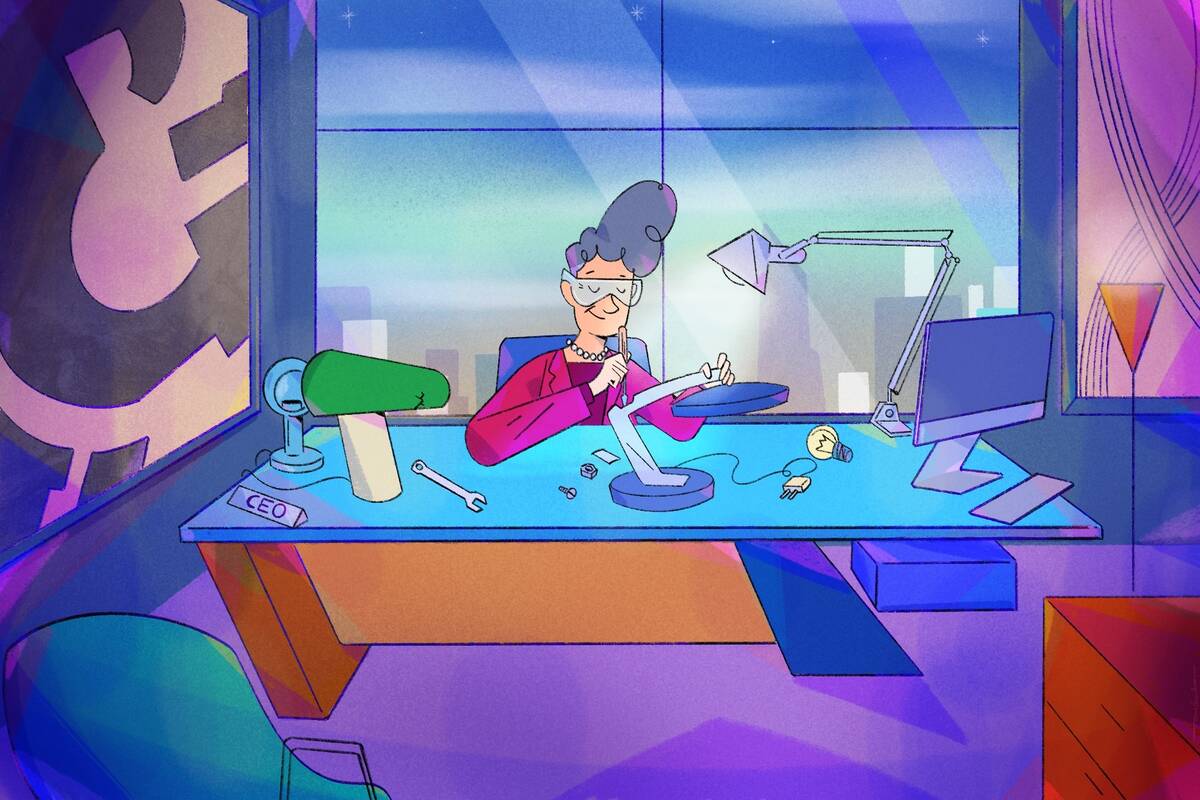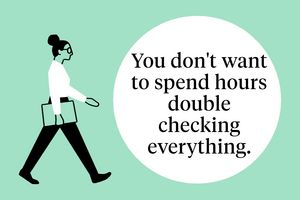Below, research and insights from faculty at the Kellogg School show you how you can keep your career moving forward in five different situations.
In times of economic uncertainty, staying in a role that has lost its luster may be smarter than risking a tight job market. But that shouldn’t stop you from advancing your career, says Carter Cast, a clinical professor of strategy at Kellogg. He provides a few practical suggestions on how to make the most of the current situation and get out of that rut.
The first is to create little bets—to test strategies or ideas in places where the stakes are relatively low. Cast explains that this is the approach that comedians even as well-known as Chris Rock like to take.
“[Chris Rock would] actually go up, and he would read new jokes, and he would gauge the reaction of a small audience,” he says, “instead of going to some big place where the stakes were high.”
Another suggestion is to try new things and interact with new people.
“We learn by doing, so to become unstuck, test and try new things,” Cast says. “Maybe you try to be a consultant or a contractor, maybe you moonlight, maybe you become an advisor to a group. Try experimenting.”
Above all, Cast says that getting unstuck will require you to see yourself and the world around you with new eyes.—and then, to act on that vision.
“There’s real power in zigging when others are zagging,” he says. “My best career moves have been unconventional ones. I sort of went my own way and did something that was a little less conventional for me. And it actually ended up being the thing that I love doing the most.”
Inspired by a trip to the Van Gogh Museum, Dashun Wang, a Kellogg professor of management and organizations, and his colleagues designed a study that used AI to analyze millions of works by artists, film directors, and scientists to understand what triggers a career hot streak.
They found that, across domains, hot streaks are typically preceded by a specific combination of exploration—more-diverse work across styles and focus areas—followed by exploitation—a narrower focus on a particular category of work that drives outsized success.
“If you just do one or the other, you don’t get the full impact,” says coauthor Jillian Chown, a Kellogg associate professor of management and organizations. “It has to be the combination of exploration followed by exploitation: experimenting in different areas, learning different domains and approaches, then really hunkering down and developing that body of high-impact work.”
The results reveal a clear “recipe” for a hot streak. And it can help guide you toward the type of activities you should engage in to give yourself the best chance of finding continued success.
In practice, this might mean exploring multiple subfields to find the right fit—such as a scientist pursuing research in multiple biology domains before settling on the most-promising area.
“We now finally know hot streaks don’t just happen by magic,” Wang says. “It’s about a person exploring different areas, then finding the right space to exploit for greater success.”
Before you delve into your search for a new role, Ellen Taaffe, a clinical associate professor of management and organizations at Kellogg, says you need to ask a key question: What have you learned about yourself in recent years?
Get concrete and specific, Taaffe advises. Make a list of answers for each question. Write them down. And don’t rule out opportunities or working arrangements that were a no-go in prior years.
Once you start to explore new job opportunities, figure out how to translate your wants and needs so that they will be beneficial to the company that is considering you. In other words, position your priorities as part of the hiring company’s solution.
“Be prepared to explain, ‘Here’s what I’m really good at, this is what I want to do that can add value, and here’s how we can shape it,’” Taaffe says. “For example, if you are interviewing to lead a major initiative, now is the time to negotiate for how you want to lead it. This could mean focusing on your strengths: your strategy, your ability to achieve cross-functional alignment, and your skill at communicating to senior management. Then let them know that leading the initiative well requires a strong project manager. Then ask for what you need to succeed.”
When you encounter setbacks at work, it pays to persevere. In fact, early career failures may actually help people find greater future success, according to research by Kellogg professors Benjamin F. Jones and Dashun Wang.
Jones, Wang, and their colleague traced the careers of more than 1,100 scientists who applied for a type of National Institutes of Health (NIH) grant called the R01. They settled on R01 grants because they’re NIH’s oldest and most common grant type and hugely important to early career researchers in the biomedical sciences. The team’s dataset included all 778,219 of these grant applications submitted to the NIH between 1990 and 2005.
The researchers compared the careers of scientists who narrowly won a R01 grant to those who just missed out.
It turned out that the scientists who did not win a grant were actually more likely to subsequently publish “hit” papers (that is, papers that cracked the top 5 percent of citations in a particular field and year). In the five years after they applied for NIH funding, 16.1 percent of papers produced by these scientists were hits, compared with 13.3 percent for the group that won a grant. Over the long run, “the losers ended up being better,” Wang says.
Further analysis suggested that the act of failing itself may have pushed the frustrated scientists to improve—confirming the conventional wisdom that “what doesn’t kill you makes you stronger.”
Jones, a professor of strategy, sees that result as highly encouraging. “The advice to persevere is common,” he says. “But the idea that you take something valuable from the loss—and are better for it—is surprising and inspiring.”
After spending 32 years working at AT&T, including as CEO of AT&T Business, Anne Chow decided she was done with her career at the company.
But the move didn’t feel like a retirement, she says, since she planned to remain active in the business world. Instead, she calls it a “rewirement”: a new career phase that comes after climbing the corporate ladder and one that embraces more purpose-driven work.
To transition into rewirement, Chow, a senior fellow and adjunct professor at Kellogg, suggests you start by doing an audit of how you spend your time—both in your day job and in any extracurricular and volunteer activities.
For each activity, she says, ask yourself: “Does it bring you fulfillment? Does it bring you joy? Do they feel like a chore or a responsibility, or do they feel like a calling?”
Once you have a sense of what will bring you joy in your rewirement, start researching what you will need to do to realize your goals. This process should include thinking through what you can uniquely offer an organization.
Chow also advises high-achieving professionals to brace themselves for some significant challenges to their sense of self. “There’s a level of respect, power, and influence that you may have become used to. … When you choose to rewire, that goes away.”
Finally, it’s crucial to think through the financial aspects of rewirement. That entails really understanding where you want to be financially in order to feel comfortable and lead the life you want. “You have to be very, very candid with yourself and your loved ones who are impacted by your decisions on how much is enough,” she says.




